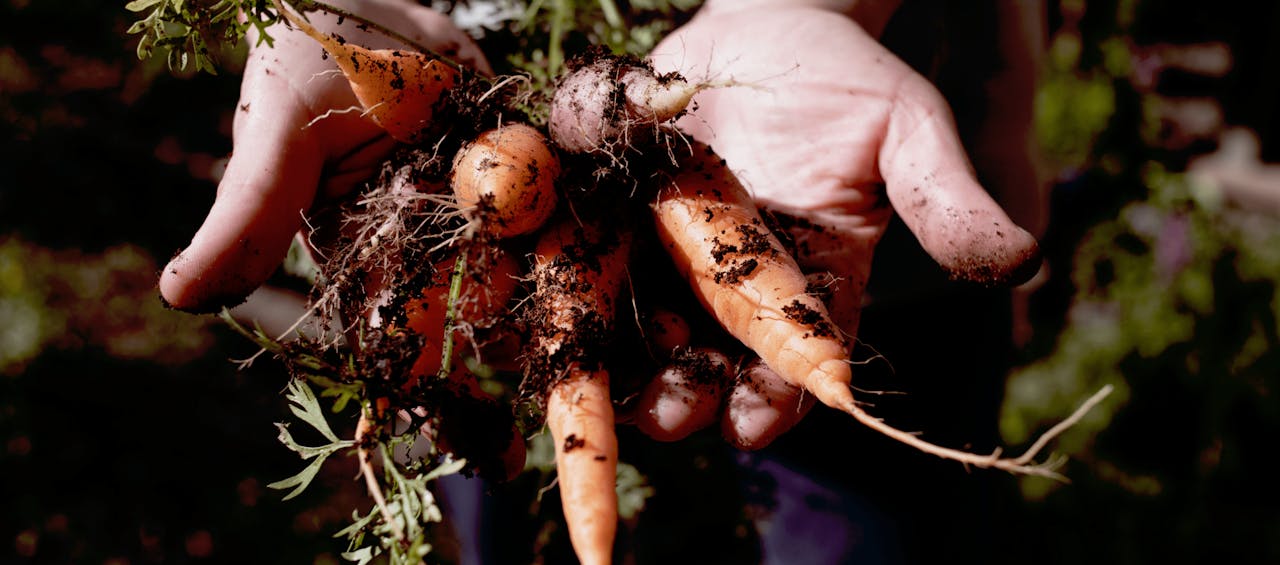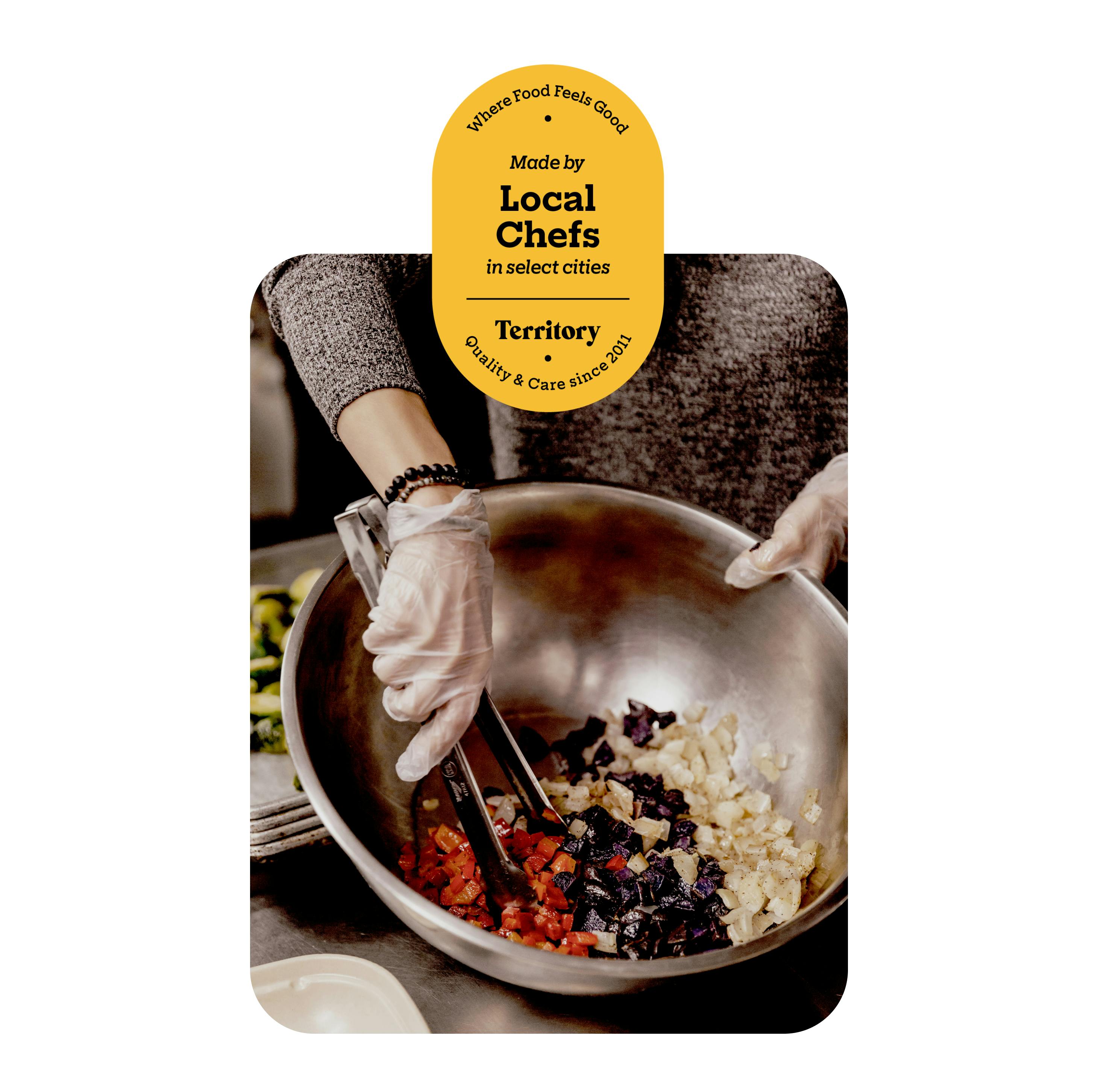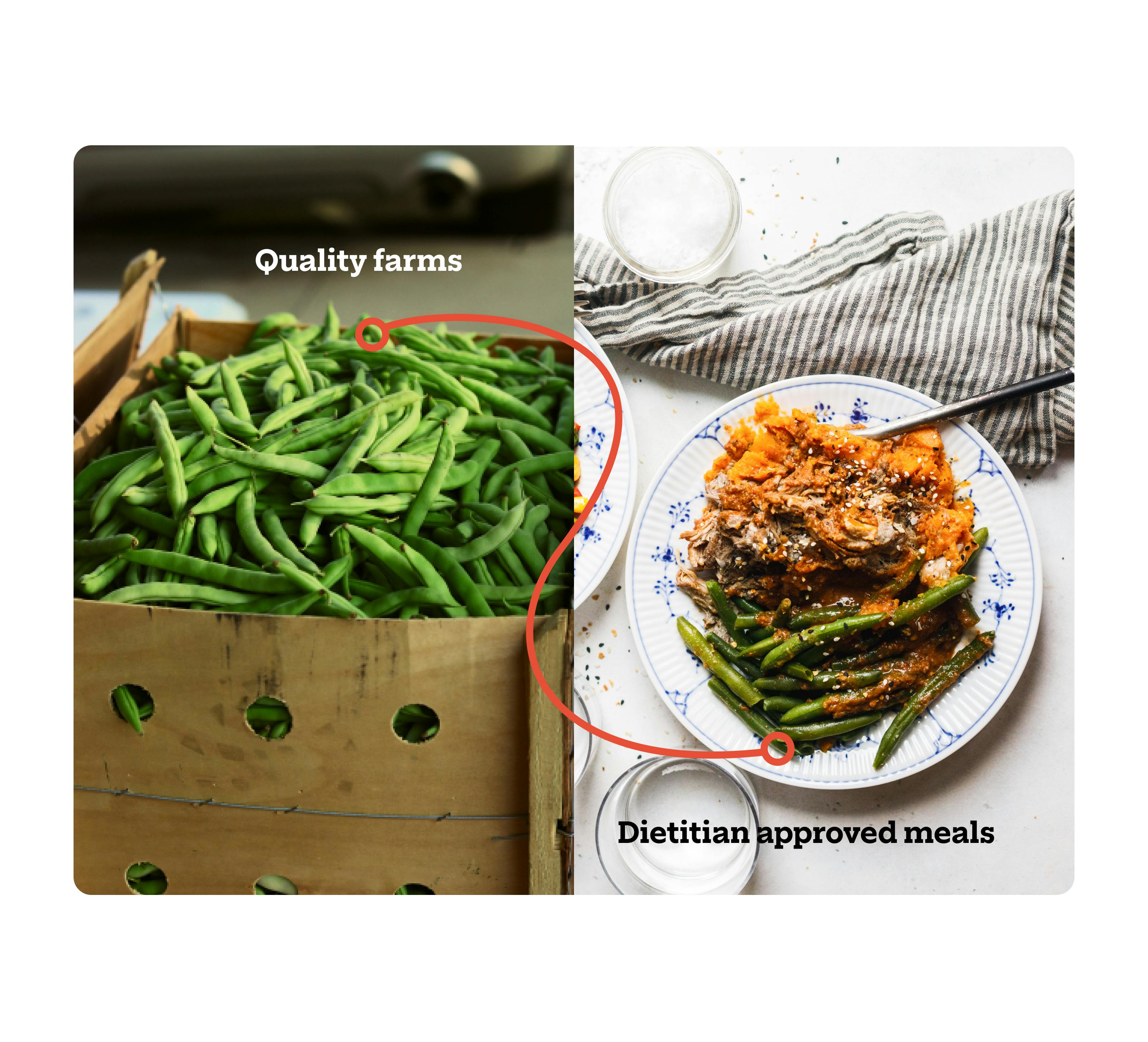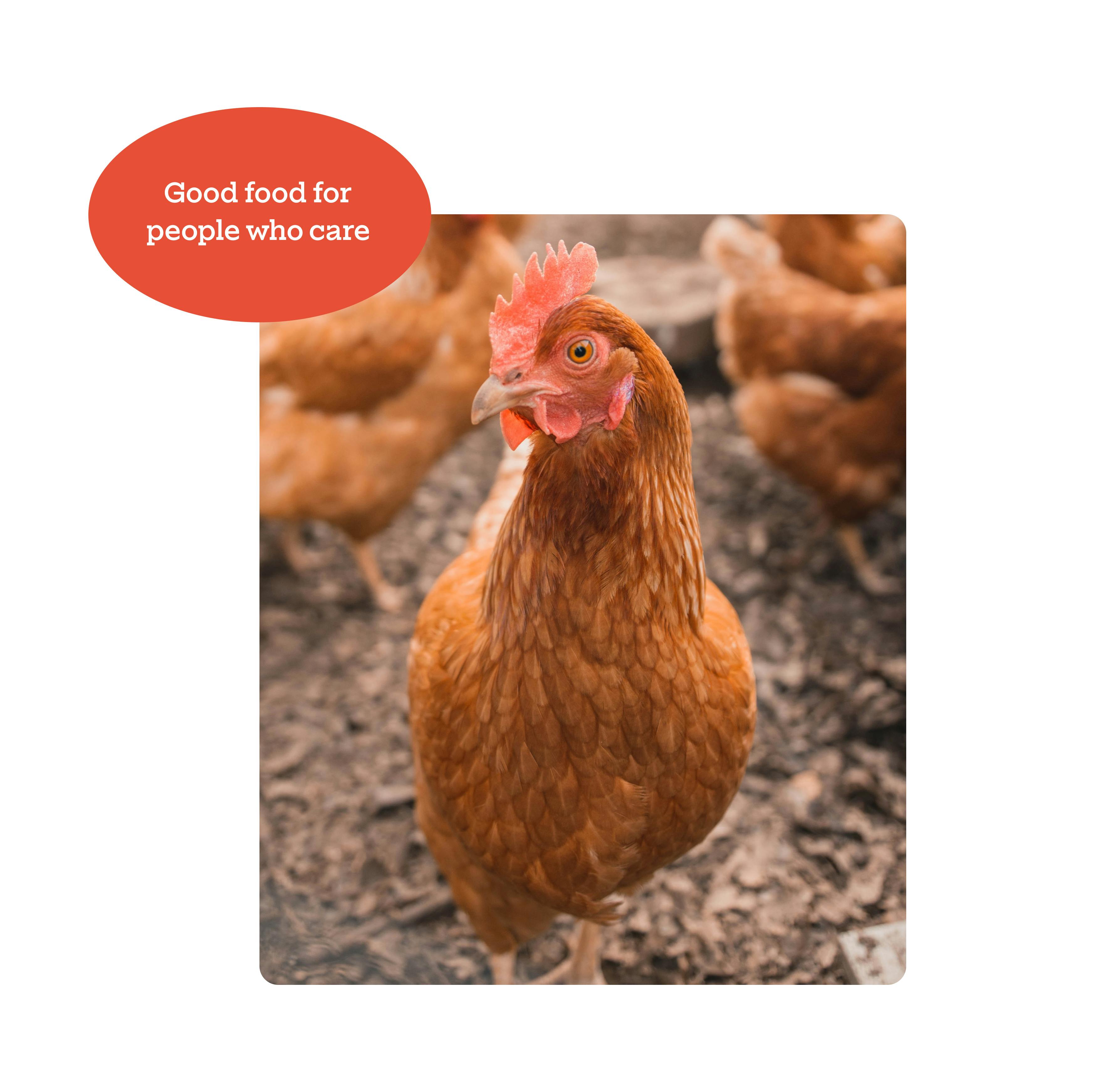
Where Our Food Comes From and Why It Matters
Begin with delicious
The first question we ask is how does it taste? If we’re not excited about eating it, we won’t serve it to you. We believe that pleasure is a food group and delicious is the most important macro. Flavor guides every decision we make.

Keep it local
Our chefs work in independent kitchens all over the country, not a centralized processor. That allows us to invest in ingredients produced close to where you live. Buying on a small scale means that our food is always fresh, helps us support your local economy, and reduces our carbon footprint. With every Territory meal you buy, you’re supporting farmers and producers in your community.

Carefully sourced ingredients
We care a lot about the integrity of our food, so we buy premium, fresh ingredients from farmers and producers we trust. We read the fine print on the labels and pepper suppliers with questions. If we don’t like the answers, we don’t buy it. If an ingredient includes inflammatory oils, refined sugar, highly processed ingredients, or chemicals, we won’t use it.

High-quality proteins
We work with many ranchers and farmers who raise animals with respect for their welfare and without antibiotics or hormones. The majority of our animal proteins are never given antibiotics ever. Beef is grass-fed or grass-fed, grain finished, and pork is never sourced from CAFOs (concentrated animal feeding operations). We have a select number of meals that contain conventionally sourced proteins, and these are easily identified in the meal information and can be filtered out. Our fish and seafood are wild-caught or sustainably raised. We follow the advice of the Monterey Bay Aquarium Seafood Watch, using only their Best Choices or Good Alternatives.
